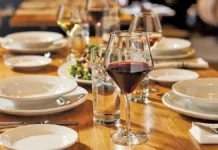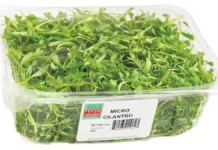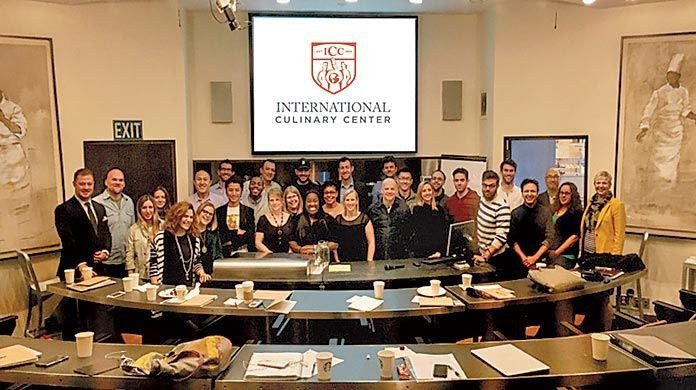
New York City’s International Culinary Center® (ICC®) has continued to hear from its students about the challenges of bringing either culinary or business skills to future ventures. In very few cases, the next generation of restaurateurs have an inherent ability to combine both.
So the ICC® set out to design a first-in-the-industry curriculum, the
Culinary Entrepreneurship program, to enable its students to develop a balanced set of skills to be able to successfully launch a restaurant or foodservice operation that will fulfill their business and creative goals. Cathi Profitko, Director of On-Line Development, and Alek Marfisi, ICC® Instructor, talk about their experiences in this new endeavor.
Give us a little background about yourself and what attracted you into a career in hospitality and foodservice.
CP: This is actually my first foray into the food industry. Prior to this, I developed educational programming in the higher education business, IT, and career disciplines for a major educational provider and I have a background in instructional design. Over the years it became clear to me that I wanted to work at a school so I could partner directly with educators and students… working at ICC® on this program is something of a dream job.
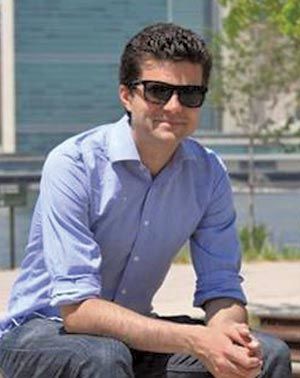
Entrepreneurship Instructor
AM: I’ve been teaching at ICC® since 2011. My background is as a consultant to mostly small businesses. My company, Upwind Strategies in Astoria, Queens, serves the whole metro area. Maybe a quarter to a third of my clients are working with about 700 companies at this point. That’s how I first got introduced to the Professional Pastry Arts program at ICC®. I started to do a small module on business planning. Now, in the Culinary Entrepreneurship program, we’re able to provide more than one point of view of how to do it. Endemic in the entrepreneurship education world are silver bullets. Everybody thinks that, well, it’s just easier to say that this is the way to do it, and this is the way you should do it. But in the Culinary Entrepreneurship program we have multiple instructors, so we achieve a mission of educating students that there’s more than one way to do something. I really was drawn to that.
Talk a little bit about some of the initiatives and programs that you’ve brought to ICC®.
CP: My first initiative here has been the 2016 re-launch of the Culinary Entrepreneurship program. The program had been offered for several years as restaurant management. It was lecture-based, brick & mortar focused and solely in-person classes spreading out over 20+ weeks. Most of our students are working full time in the industry or are career changers and they don’t have time to commit to that. So we evaluated student needs – did our due diligence about what they were really looking for – and redesigned the program to meet their needs. The Culinary Entrepreneurship program is now project-based – they develop a real business plan and test their assumptions and we cover all aspects of the food industry. We made it more accessible by shortening the in-class time commitment (six 8-hour sessions) and utilizing common technology to make resources, instructor support and project work available online 247 – allowing students to work when it’s most convenient for them.
AM: The components of the Culinary Entrepreneurship program I teach include understanding and projecting your finances, figuring out how much in food costs you have, and anything on the P&L. Food people typically approach this with the most trepidation because they’re very focused on the concept and the product itself. Most don’t come from finance. There’s a contingent of the class who are career changers who may come from a financial services background. I enjoy seeing students get it in terms of figuring out working capital and how much money they need, not only to open, but to survive the first couple of years. I also teach market analysis – figuring out how to access your concept. My mission in this program is to help students understand the concept of feasibility. I have a great idea, and maybe my close circle of friends think this is a great idea, but does the rest of the world think it’s a great idea? More importantly, can I execute it?
What was the main motivation for the Culinary Entrepreneurship program?
CP: Helping students get started. The food industry has very unique challenges. Everything from, your goods are perishable, to the emotional relationship between food and people. There’s also a lot going on in the industry. Food start-up opportunities are everywhere. Just look on Instagram and at all the food markets & pop-ups. There are tons of opportunities for people to start their dream business, but the first steps are overwhelming. So that’s what we really wanted to focus on. We break down the process, we examine it one step at a time using the business plan as our map. By working on a real business plan, we teach tools for effective business planning and assessment…and effective planning minimizes risk.
AM: How do you figure out what combination of service and product people want? One motivation is finding a way to help students come up with inventive ways to figure that out. The other is figuring out a way to get more women involved in the food industry. I highlight that during one of the introductory classes, featuring a lot of notable women entrepreneurs and ways in which they’ve reinvented the industry. I think that’s something important to talk about because the industry as a whole is male-dominated. There are a lot of women out there with great ideas that are hesitating to start businesses, and I’d like to open that up.
How have the Culinary Entrepreneurship classes gone?
CP: It’s been overwhelmingly positive. We’ve had two sessions so far. Our third will start on September 17. Students find that having 24/7 access to course materials definitely helps them juggle their busy schedules and it facilitates collaboration they also get help when they need it. In an exit survey students described the classroom experiences as intense and fun. I love that. To me that says they are comfortable and being challenged.
What’s the profile of a successful student in this program?
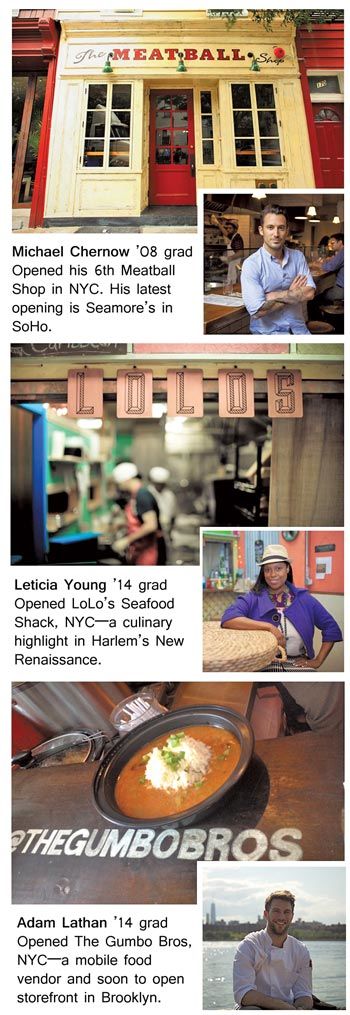
CP: We don’t have a single profile. The students are very diverse in backgrounds, experience in the industry, age and locale. But there are attributes and behaviors that stand out as common amongst them. They’re driven and willing to put in the work. It’s an intense program. Just like in our Professional Culinary and Pastry Arts programs, you work hard, very hard. And you get out what you put in. They’re also open to ideas. Throughout the course we test a lot of assumptions. A food business is a labor of love. Sometimes a student’s assumptions may not hold water and they need to change them. That can be tough, especially when it’s something they hold dear to their hearts. The students who are most successful are flexible and open to change.
Does success in New York City require a very different and separate skill set?
AM: There are definitely skills that you need in New York that are different than elsewhere. But I would caveat that with, they are nurtured, they’re not nature. These skills are all learned skills that anybody can learn. They’re related to the fact that it’s very competitive. New York City was indexed as the most competitive city in the country. And in terms of food businesses, there are more than 25,000 food businesses in New York City alone. That’s a lot of competition. So the skills needed are related to understanding and working with that competition, and at the same time, doing so in a domain where the stakes are higher. Labor costs are high. Rent is really high, a percentage of sales even. And these are all higher in New York than anywhere else. So we have to help students understand and work with that in New York.
What does the future look like?
CP: The school’s goal is to support and cultivate the next generation of chefs and industry leaders. For more than 30 years ICC® has produced chefs that have changed the culinary landscape so we’re ideally positioned to do the same in all areas of this ever growing & changing industry,
Clearly the business side is something that’s going to challenge someone who wants to be a chef and open a restaurant. How do you work with that?
CP: It’s one of the subjects we address in our very first session. We do a bit of self assessment. The fact that we have students coming in with different backgrounds adds more value to the program, because it fosters collaboration, and that is one of the entrepreneurial skills we try to impart. No one can do everything, and you have to really be comfortable with what you’re good at and then be comfortable finding people to help you with what you’re not. We tell students the first day that their best resource may actually be the student seated next to them.
You have a lot of celebrity chefs who are alumni. What impact has the whole celebrity chef idea had on the type of student? And your ability to recruit?
CP: They’re the inspiration, right? How could they not be a draw? But once students sit down and talk to our instructors, their willingness to share their experience – how accessible and supportive they are – is what rises to the top. I don’t want to say their celebrity just fades away, but it’s immediately evident that they’re here to support our students and they want them to succeed. That may sound a little too warm and fuzzy, but it’s the truth.
Do recent alumni come back and offer support through the program?
CP: Yes, we have several recent alumni – Adam Lathan, The Gumbo Bros and Leticia Young, Lolo’s Seafood Shack for example, who come back to offer their support as information and networking resources or being student mentors during the program.
How does a prospective student get in touch with you?
CP: Contact the school. You can call 888.324.2433 or email info@culinarycenter.com for more information.






















